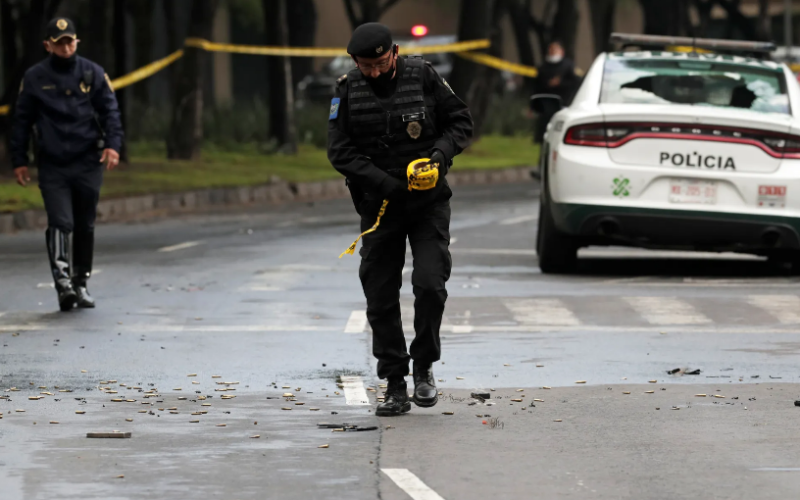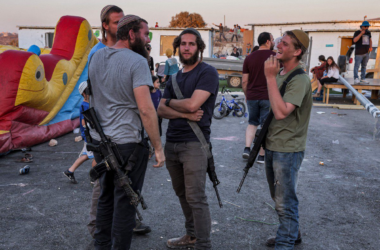A disturbing wave of violence is sweeping across Mexico, leaving communities in fear and underscoring the government’s struggle to control criminal activities. Recent incidents, including the brutal killing of medical students, a deadly attack on bystanders at a hair salon, and a massacre at a holiday party, have intensified concerns about the country’s escalating security crisis. The surge in mass killings, occurring within the past month, highlights the pervasive issue of almost complete impunity for criminals, presenting a formidable challenge for Mexican authorities.
Mexico grapples with a staggering rate of unsolved criminal cases, with less than 4 percent of investigations reaching resolution. Additionally, a concerning 92 percent of crimes went unreported in 2022. The prevailing sense of impunity emboldens criminals, who operate with little fear of facing consequences for their actions. The alarming rate of violence has become a central political issue in the lead-up to Mexico’s crucial presidential election, reflecting citizens’ heightened insecurity and the government’s pressure to address powerful drug cartels.
The dominance of cartels in Mexico has attracted attention from American officials, with Republicans even considering the idea of intervention to combat criminal groups. The violence, coupled with criminal groups’ attacks on communities, contributes to a growing migration crisis at the southern U.S. border. Nearly 160,000 Mexican families were apprehended crossing illegally from October 2022 to September, quadruple the previous year’s figures. Cartels, through threats of recruitment, extortion, or death, force people out of their homes, contributing to the surge in migration.
Mexican citizens, angered by the pervasive criminal influence, have reached a breaking point in some regions. In a notable incident, farmers in central Mexico retaliated against gang members attempting extortion, resulting in the deaths of suspected cartel members. While celebrated by some as citizens standing up against criminal elements, the repercussions have led to displaced families and heightened tensions, revealing the complex dynamics of addressing criminal dominance.
President Andrés Manuel López Obrador, in office since 2018, vowed to address crime by focusing on poverty alleviation rather than confronting cartels aggressively. Despite a strategy labeled “hugs, not bullets,” challenges persist. While homicides have seen a modest decline over the last five years, reports of extortion and missing persons have surged. López Obrador’s statements linking high-profile attacks to victims’ alleged involvement with drugs have fueled public anger and accusations of victim-blaming.
As Mexico grapples with an alarming surge in violence, citizens demand effective solutions, and the government faces increased pressure to tackle the root causes of criminal activities. The combination of a pervasive sense of impunity, escalating crime rates, and a looming presidential election creates a complex and challenging environment for Mexican authorities. The need to strike a balance between citizens’ safety, human rights, and effective anti-crime measures remains a critical issue in shaping the nation’s future.








